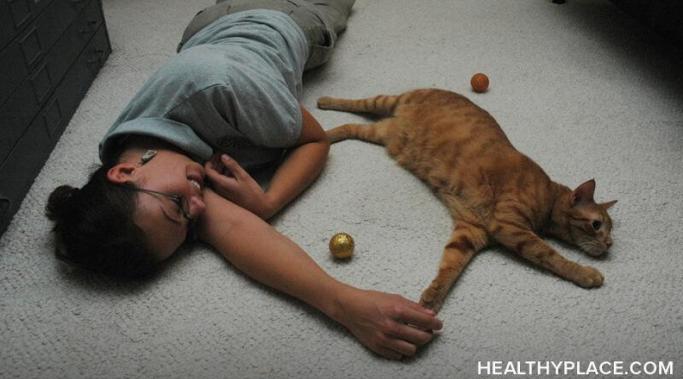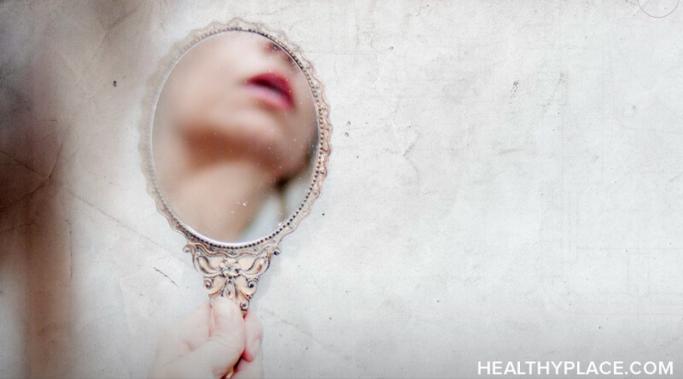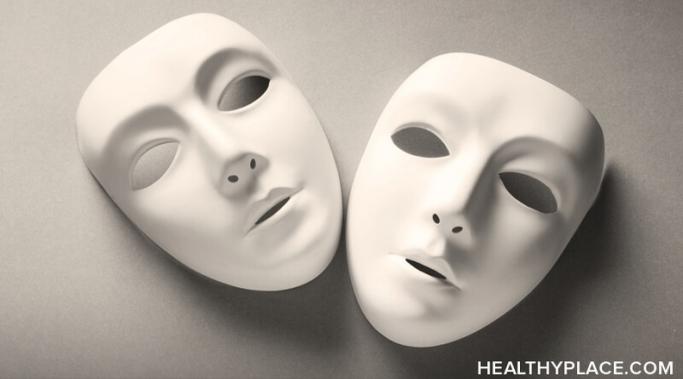I've used art to manage my mental illness. Art and tapping into creativity is an excellent source of self-therapy. When I was in intensive therapy during a difficult point of my life, I was introduced to art as therapy. I was skeptical at first, but the idea that art could help manage my mental illness and be soothing and stress-relieving opened a new door for me in my recovery.
Embracing Mental Health Recovery
Pet adoption in mental illness recovery is an important decision. Pets are cute, comforting, and can be great for someone's mental health. Even last week, I saw a dog sporting his "emotional support dog" vest. Many people with mental illness find comfort in their pets, and there are many reasons why pet adoption during mental illness recovery makes sense, but the decision to bring a pet into your life can be equally amazing and stressful.
"I'll sleep when I'm dead" is a line my former self fully embraced before learning more about sleeping for mental health. If others didn't need sleep, I thought I didn't either. That thought process took a nasty toll on my mental health. Sleeping is essential for mental health and shouldn't be put on the back burner.
As I recovered from my mental illness, I still had an overwhelming, heavy feeling that I was behind in life. I spent so much time asking myself what I had done wrong when I really should have asked myself, "Why do I feel this way?" Comparing myself to others was a dangerous, harmful game, and at the end of the day, I was the only one keeping score in being behind in life.
Journaling can be an exceptional tool for managing mental health, and I've found creative journaling tips that have helped me reframe what it means to journal. When hearing the word "journaling," I used to think of "dear diary" entries, but now I believe there are many journaling tactics that are useful in combatting anxiety, depression, and guilt and gauging mental illness recovery progress. I'm excited to share some creative ways I've used journaling tips to assist in managing my mental health.
Admitting that I miss my manic symptoms has been difficult. A large part of my mental illness recovery has been fueled by the desire to get better. I continuously work towards recovery, but I still face guilt when I find myself missing the symptoms experienced from my manic episodes as someone with bipolar disorder.
Did you know there are warning signs of a setback in mental illness recovery? This is important to know because recovering from mental illness is not linear. I've heard that often and for a good reason. It's true; recovery is far from linear. I've faced many obstacles, bumps, and slow-downs in my own journey, and often, I didn't realize that I had begun slipping until I was already in a tough spot. It's easier to catch myself slipping and then change directions than to find myself in these slumps, so I've found it helpful to identify my own warning signs of a setback in mental health recovery.
Understanding the difference between self-confidence and self-worth has helped me on my mental illness recovery journey. Self-confidence is more exterior, valuing my abilities and external presentation. Self-worth is my internal view of myself and what I deserve. Learn more about mental illness and self-confidence versus self-worth below.
One surprising part of my mental health recovery journey was experiencing heightened emotions. I had successfully dodged painful feelings for years, developing a fear of feeling. But now that I'm recovering, I've felt my emotions more deeply, in almost an overwhelming way. Fear of feeling can be difficult to navigate, but it ultimately enhances my life experiences.
Goodbyes suck. I suck at giving goodbyes. There are times I’m more likely to fade away than give a proper goodbye. But, in this case, I’m here to give a proper goodbye to HealthyPlace. As much as I don’t want to say goodbye, it feels like it’s time for me to move along.









